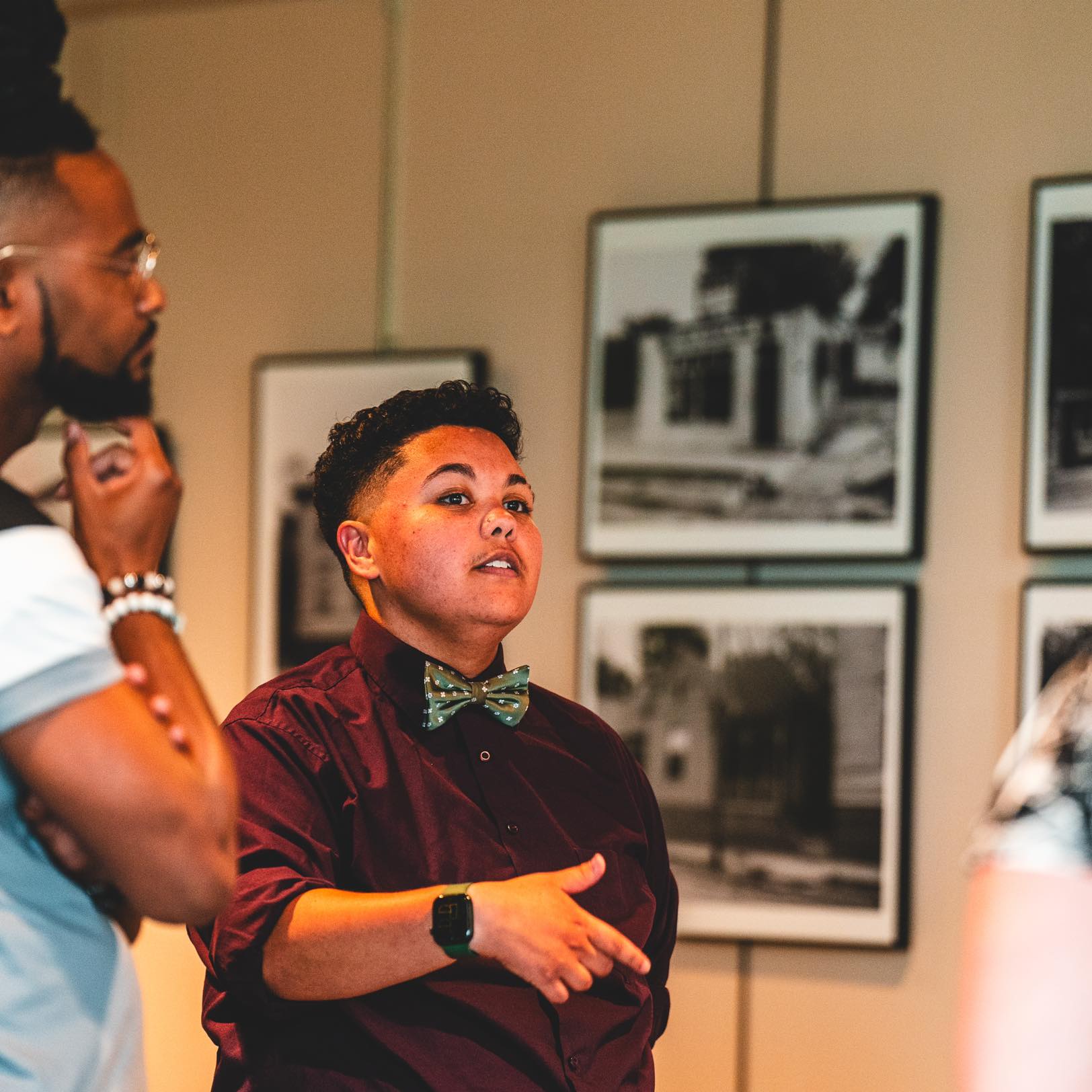Gallagher v. Arkansas Department of Finance and Administration
- Filed: 04/30/2024
- Status: On appeal
- Court: Division 11 Sixth Judicial Circuit
- Latest Update: Apr 30, 2024

The ACLU of Arkansas has initiated a lawsuit against the Arkansas Department of Finance and Administration (DFA) on behalf of five plaintiffs, contesting a recent emergency rule that restricts transgender and nonbinary individuals' ability to self-identify their gender on driver’s licenses.
The ACLU of Arkansas has initiated a lawsuit against the Arkansas Department of Finance and Administration (DFA) on behalf of five plaintiffs, contesting a recent emergency rule that restricts transgender and nonbinary individuals' ability to self-identify their gender on driver’s licenses. The lawsuit argues that the emergency rule was implemented without proper justification or adherence to procedural requirements, such as a 30-day public notice and comment period.
The complaint highlights that the DFA's sudden policy shift, which eliminated the option for individuals to self-select their gender marker and abolished the "X" marker option, contradicts more than a decade of inclusive practices. This change has left many Arkansans without driver’s licenses accurately reflecting their gender identity, leading to psychological distress and exposing them to discrimination and violence.
The legal action seeks a declaratory judgment of the emergency rule's invalidity and injunctions to halt its enforcement, reverting to the previous inclusive policy. It argues that the rule disregards medical consensus on gender dysphoria treatment, violates individuals' privacy, and undermines the safety and well-being of transgender, nonbinary, and intersex people.
The ACLU of Arkansas aims to hold agencies accountable for impinging on Arkansans' rights and uphold values of equality and non-discrimination. The lawsuit reflects their commitment to fighting for the rights and dignity of all individuals in the state.
The ACLU of Arkansas has initiated a lawsuit against the Arkansas Department of Finance and Administration (DFA) on behalf of five plaintiffs, contesting a recent emergency rule that restricts transgender and nonbinary individuals' ability to self-identify their gender on driver’s licenses. The lawsuit argues that the emergency rule was implemented without proper justification or adherence to procedural requirements, such as a 30-day public notice and comment period.
The complaint highlights that the DFA's sudden policy shift, which eliminated the option for individuals to self-select their gender marker and abolished the "X" marker option, contradicts more than a decade of inclusive practices. This change has left many Arkansans without driver’s licenses accurately reflecting their gender identity, leading to psychological distress and exposing them to discrimination and violence.
The legal action seeks a declaratory judgment of the emergency rule's invalidity and injunctions to halt its enforcement, reverting to the previous inclusive policy. It argues that the rule disregards medical consensus on gender dysphoria treatment, violates individuals' privacy, and undermines the safety and well-being of transgender, nonbinary, and intersex people.
The ACLU of Arkansas aims to hold agencies accountable for impinging on Arkansans' rights and uphold values of equality and non-discrimination. The lawsuit reflects their commitment to fighting for the rights and dignity of all individuals in the state.
Brandyn Gallagher (they/them)
Meet Brandyn, a plaintiff in Gallagher v. Arkansas DFA.
“Forcing me to choose between falsely claiming a biological sex that isn't true or risking my job is unjust. The emergency rule puts me in a no-win situation, impacting both my livelihood and my wellbeing.”
Brandyn (they/them) is a nonbinary person who has undergone hormone treatment since 2013, including testosterone and estrogen, to address health issues. They work as a truck driver and obtained a CDL with the gender marker “X” in 2019. The emergency rule has jeopardized their job security and subjected them to increased stress.

“Forcing me to choose between falsely claiming a biological sex that isn't true or risking my job is unjust. The emergency rule puts me in a no-win situation, impacting both my livelihood and my wellbeing.”
Brandyn (they/them) is a nonbinary person who has undergone hormone treatment since 2013, including testosterone and estrogen, to address health issues. They work as a truck driver and obtained a CDL with the gender marker “X” in 2019. The emergency rule has jeopardized their job security and subjected them to increased stress.
Lydia Nelson (they/them)
Meet Lydia, a plaintiff in Gallagher v. Arkansas DFA.
Lydia (they/them), a nonbinary person, relies on a state-issued ID that previously listed their gender as “X.” However, the emergency rule has left them with the choice of either obtaining an ID that misrepresents their identity or going without essential documentation.
“Being forced to choose between a false representation of my identity and not having proper identification infringes on my ability to participate fully in society. The emergency rule perpetuates harm and erasure of nonbinary Arkansans like me.”

Lydia (they/them), a nonbinary person, relies on a state-issued ID that previously listed their gender as “X.” However, the emergency rule has left them with the choice of either obtaining an ID that misrepresents their identity or going without essential documentation.
“Being forced to choose between a false representation of my identity and not having proper identification infringes on my ability to participate fully in society. The emergency rule perpetuates harm and erasure of nonbinary Arkansans like me.”
Haley Prentice (she/her)
Meet Haley, a plaintiff in Gallagher v. Arkansas DFA.
Haley (she/her), a transgender woman, has taken steps in her transition, including hormone replacement therapy and legal name change. Despite these efforts, she faces resistance in changing her gender marker on her driver’s license due to the emergency rule, impacting her safety and wellbeing.
“Being denied the ability to update my gender marker disregards my identity and puts me at risk of discrimination and harm. The emergency rule denies me the basic dignity of being recognized for who I am.”

Haley (she/her), a transgender woman, has taken steps in her transition, including hormone replacement therapy and legal name change. Despite these efforts, she faces resistance in changing her gender marker on her driver’s license due to the emergency rule, impacting her safety and wellbeing.
“Being denied the ability to update my gender marker disregards my identity and puts me at risk of discrimination and harm. The emergency rule denies me the basic dignity of being recognized for who I am.”
JaVon Hansen (he/him)
Meet JaVon, a plaintiff in Gallagher v. Arkansas DFA.
JaVon (he/him) is a transgender man who legally changed his name in 2022. Despite identifying as male for eight years, he was unable to change the gender marker on his driver’s license due to the emergency rule. This discrepancy causes him distress and exposes him to potential discrimination.
“My identity is not up for debate. Being forced to carry identification that misrepresents who I am undermines my dignity and safety. The emergency rule denies me the basic right to live authentically."

JaVon (he/him) is a transgender man who legally changed his name in 2022. Despite identifying as male for eight years, he was unable to change the gender marker on his driver’s license due to the emergency rule. This discrepancy causes him distress and exposes him to potential discrimination.
“My identity is not up for debate. Being forced to carry identification that misrepresents who I am undermines my dignity and safety. The emergency rule denies me the basic right to live authentically."
Kaden McIntosh (they/them)
Meet Kaden, a plaintiff in Gallagher v. Arkansas DFA.
Kaden, a nonbinary Arkansan, has identified as such since 2020. They took steps to change their gender marker to “X” on their driver's license, but the emergency rule halted their plans. McIntosh’s situation underscores the limitations imposed by the rule on individuals’ self-expression.
“The emergency rule forces me into a box that doesn't fit. Denying me the option to accurately represent my gender identity on my ID denies me the basic respect and recognition I deserve.”

Kaden, a nonbinary Arkansan, has identified as such since 2020. They took steps to change their gender marker to “X” on their driver's license, but the emergency rule halted their plans. McIntosh’s situation underscores the limitations imposed by the rule on individuals’ self-expression.
“The emergency rule forces me into a box that doesn't fit. Denying me the option to accurately represent my gender identity on my ID denies me the basic respect and recognition I deserve.”
- 04/30/2024 Complaint.pdf
- 04/30/2024 Brief In Support of Motion for Preliminary Injunction.pdf
- 04/30/2024 Motion for Preliminary Injunction.pdf
- 04/30/2024 Exhibit A.pdf
- 04/30/2024 Expedited Order.pdf
Date Filed: 04/30/2024
Court: Division 11 Sixth Judicial Circuit
Affiliate: AR
Download documentDate Filed: 04/30/2024
Court: Division 11 Sixth Judicial Circuit
Affiliate: AR
Download documentDate Filed: 04/30/2024
Court: Division 11 Sixth Judicial Circuit
Affiliate: AR
Download documentDate Filed: 04/30/2024
Court: Division 11 Sixth Judicial Circuit
Affiliate: AR
Download documentDate Filed: 04/30/2024
Court: Division 11 Sixth Judicial Circuit
Affiliate: AR
Download documentLearn More About the Issues in This Case
Stay Informed
Sign up to be the first to hear about how to take action.
By completing this form, I agree to receive occasional emails per the terms of the ACLU’s privacy statement.
By completing this form, I agree to receive occasional emails per the terms of the ACLU’s privacy statement.
